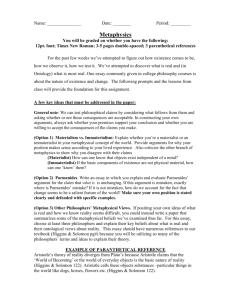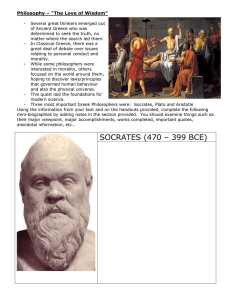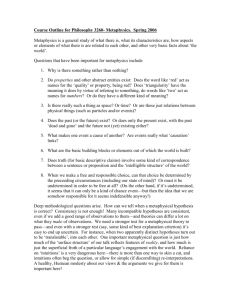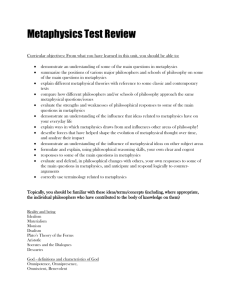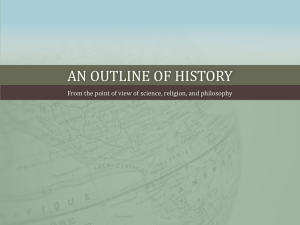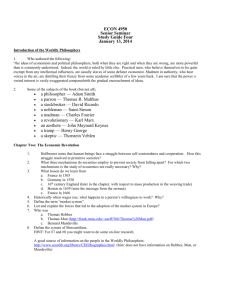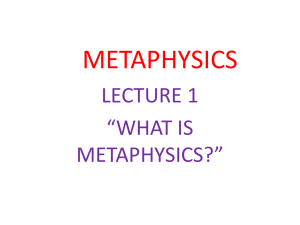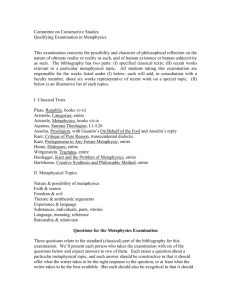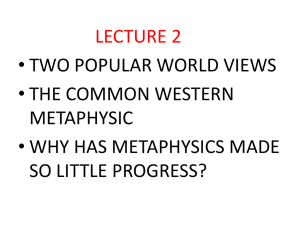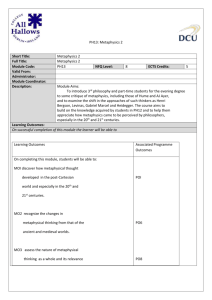Metaphysics:
advertisement
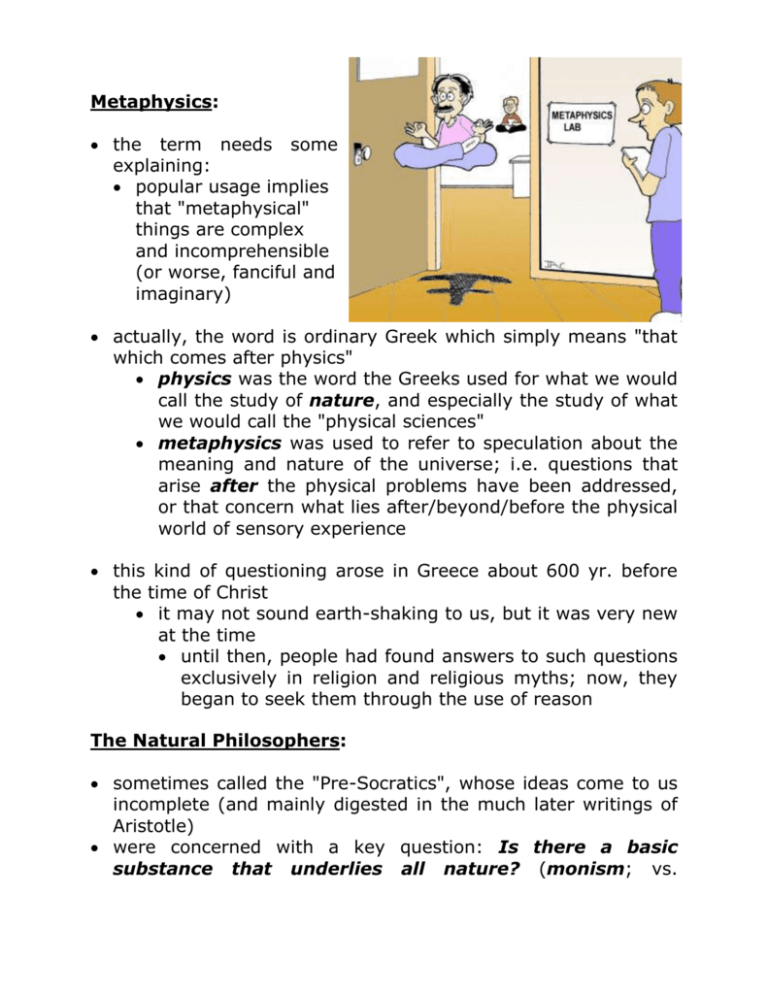
Metaphysics: the term needs some explaining: popular usage implies that "metaphysical" things are complex and incomprehensible (or worse, fanciful and imaginary) actually, the word is ordinary Greek which simply means "that which comes after physics" physics was the word the Greeks used for what we would call the study of nature, and especially the study of what we would call the "physical sciences" metaphysics was used to refer to speculation about the meaning and nature of the universe; i.e. questions that arise after the physical problems have been addressed, or that concern what lies after/beyond/before the physical world of sensory experience this kind of questioning arose in Greece about 600 yr. before the time of Christ it may not sound earth-shaking to us, but it was very new at the time until then, people had found answers to such questions exclusively in religion and religious myths; now, they began to seek them through the use of reason The Natural Philosophers: sometimes called the "Pre-Socratics", whose ideas come to us incomplete (and mainly digested in the much later writings of Aristotle) were concerned with a key question: Is there a basic substance that underlies all nature? (monism; vs. pluralism, the idea that one must refer to more than one feature of the universe to explain the source of things) Three Philosophers from Miletus: all believed that (i) nothing can come from nothing, and that (ii) there must be one basic substance that is the source of all things (monists) Thales (ca. 585 BCE) thought that all things come from water Anaximander ( a contemporary) thought that all things evolve from and dissolve back into "the boundless" Anaximenes (ca. 570526 BCE) thought that all things come from air DISCUSS these speculations led them to the last of the four great metaphysical questions that philosophers (including us) have struggled with ever since: Does God exist? If so, what is God like? What is the fundamental nature of the (human) person? Do we have free will, or our lives and choices already determined for us? We have both mind and body: how are these related? How does one explain permanence and change?

